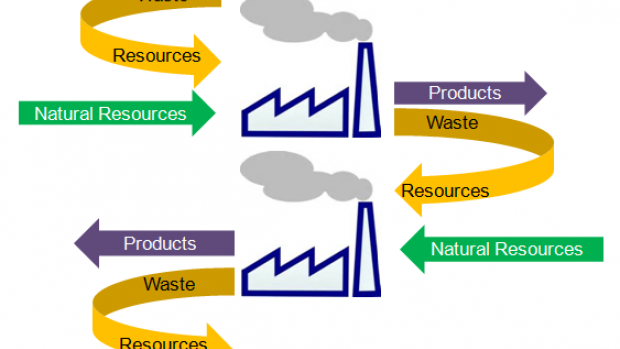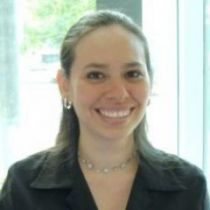A Big Idea for a Big App that Could Help Control Waste in the Big City

11/16/15 UPDATE: RISE has been selected as a Finalist in the BigApps Competition!
When the New York City Economic Development Corporation (NYCEDC) challenged members of the public to create functioning, marketable tech tools to help solve pressing civic problems, it was almost a given that someone from the NYU Tandon School of Engineering would step up to enter. At a school in which innovation and entrepreneurship are important watchwords, BigApps NYC, as the competition is called, is a natural fit.

Bertha Jimenez
Now, one NYU team, led by Bertha Jimenez, a PH.D. candidate in the Department of Technology Management and Innovation, has reached the semifinals of the competition, with RISE (Real-time Industrial Symbiosis Exchange)—an online marketplace for industrial by-products.
While it’s easy to see why a company would want to get rid of their by-products, it’s harder to understand why anyone would purchase them. Jimenez explains using the example of breweries (especially appropriate for New York City, which is home to dozens of microbreweries, a large percentage of them in Brooklyn). Beer is made from grain (with the addition of hops and yeast), and after the beverage is brewed, a semisolid substance called “spent grain” is left. The spent grain is surprisingly high in fiber and protein and is absolutely safe for consumption.
“In other parts of the country, where there are a lot of farms, spent grain is used as animal feed, but that’s not realistic here in the city,” Jimenez says. “But bakers are discovering that it can be used to make wonderful breads, granola bars, and other products.” It takes slightly less effort simply to discard the grain—if it’s to be sent to bakeries, it must be collected in food-grade receptacles and transported before it spoils—but the businesses Jimenez and her teammates have approached about participating are excited by the prospect. “Although this makes sense economically for both parties, what the breweries and bakeries alike find most compelling is how green the process is. A lot of businesses now want to have as small an impact on the environment as possible, and this allows them to work towards that goal.”
The team members—who include Jessica Aguirre and Remington Tonar from the School of Professional Studies; Martina Balestra, a doctoral stundent in Tandon’s Department of Technology Management and Innovation; Lev Tatz from the College of Arts and Science; and Nilufer Polat a School of Engineering grad—hope that RISE will eventually expand to additional industries. Jimenez points out, for example, that wine by-products can be used to make cosmetics, and coal by-products are useful in glass manufacturing.
Professor Anne-Laure Fayard, who advises Jimenez, has seen RISE develop from its earliest stages. “The RISE Team is a great example of how students from different majors and schools at NYU can come together to work on an innovative idea that can really make an impact,” she says. “It also illustrates the importance of the NYU ecosystem in supporting students with ideas to explore: this started as an idea in my design thinking course submitted to the Global Idea Exchange in 2012. RISE was a winning idea, and all the co-founders met in Shanghai for the Global Idea Exchange workshop. Several of them regularly participate at the Greenhouse Innovation Space at NYU Tandon.” She concluded, “Research shows how good ideas rarely come out fully grown and that innovators need to be resilient and persistent, exactly as the RISE team has proven to be. I’m personally very proud of how far they’ve come."




